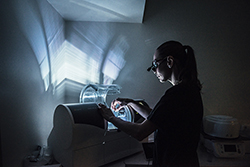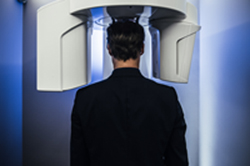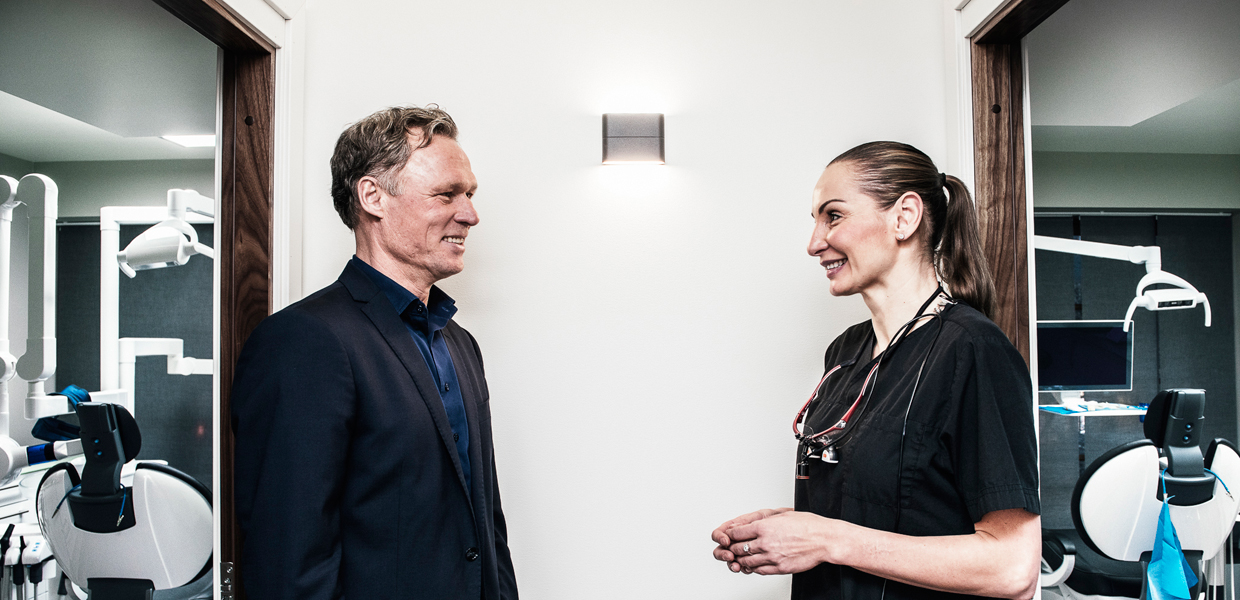Maria Gibsand, Mirala Clinic (left) and Johan Tallroth, DLL (right)
Fully half the Swedish population thinks going to the dentist is an unpleasant experience. Around ten percent are actually phobic about it. Now many hope that new technology will help to change that image. We visited the Mirala Clinic to get a look into modern dental care.
In the heart of central Stockholm, a modest plaque marks the door to the Mirala Clinic, one of the few dental surgeries in Sweden that offer biological dental care.
It’s not just the technology and methods at the Mirala Clinic that differ from the traditional dentist. Walking through the door, you get the distinct impression of visiting a spa rather than a dentist.
“I want the atmosphere to be relaxing,” says Maria Gibsand, a dentist specialising in implant surgery. Many of the patients at her clinic, which she’s been operating for over ten years, have severe oral health problems.
The reception area and the lobby-like waiting room are decorated in natural materials and warm, soothing colours. The lighting is soft and pleasant. Gentle music plays in the background. And that atmosphere carries through to the treatment rooms.
Many put off going to the dentist
Surveys show that fully half the Swedish population thinks going to the dentist is an unpleasant experience. Around ten percent are actually phobic about it. For a few percent, the fear is so intense that they can’t manage a regular dental appointment without sedation.
“It’s not really strange that many are afraid,” Gibsand comments. “Dentists of the past didn’t put much effort into making their treatments painless or making the patient comfortable. It was pretty awful. That’s why so many people today put off going to the dentist, which often makes their problem far worse.” She pauses for emphasis before adding, “We know that oral health affects our overall health status. Many who have dental issues go on to have other health problems. It’s a vicious circle.”
A generational shift
But that may be about to change. Technological advances in the healthcare industry has grown fast over the last years, and the field of dentistry is no exception. Major progress has been made in digitalisation and the development of new imaging and scanning technology, among other things. Equipment that at one time could only be found in hospitals is now available at individual dental surgeries.


